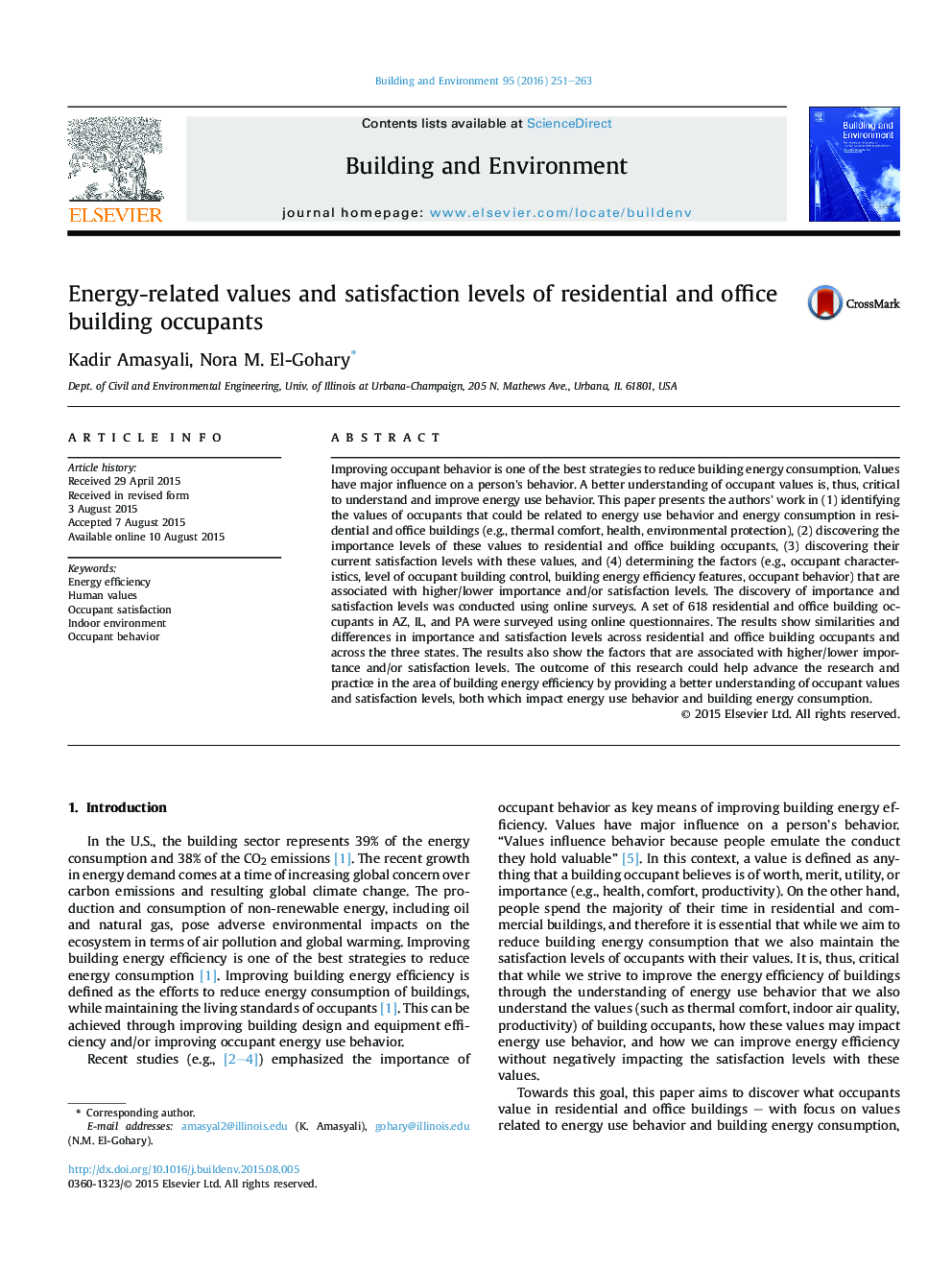| Article ID | Journal | Published Year | Pages | File Type |
|---|---|---|---|---|
| 247771 | Building and Environment | 2016 | 13 Pages |
•Occupant values such as thermal comfort and health impact energy use behavior.•We report the results of a survey of residential and office building occupants.•The results include importance levels of values and satisfaction levels with values.•We analyze similarities and differences across occupant types and across states.•We analyze the factors associated with higher/lower importance and/or satisfaction.
Improving occupant behavior is one of the best strategies to reduce building energy consumption. Values have major influence on a person's behavior. A better understanding of occupant values is, thus, critical to understand and improve energy use behavior. This paper presents the authors' work in (1) identifying the values of occupants that could be related to energy use behavior and energy consumption in residential and office buildings (e.g., thermal comfort, health, environmental protection), (2) discovering the importance levels of these values to residential and office building occupants, (3) discovering their current satisfaction levels with these values, and (4) determining the factors (e.g., occupant characteristics, level of occupant building control, building energy efficiency features, occupant behavior) that are associated with higher/lower importance and/or satisfaction levels. The discovery of importance and satisfaction levels was conducted using online surveys. A set of 618 residential and office building occupants in AZ, IL, and PA were surveyed using online questionnaires. The results show similarities and differences in importance and satisfaction levels across residential and office building occupants and across the three states. The results also show the factors that are associated with higher/lower importance and/or satisfaction levels. The outcome of this research could help advance the research and practice in the area of building energy efficiency by providing a better understanding of occupant values and satisfaction levels, both which impact energy use behavior and building energy consumption.
